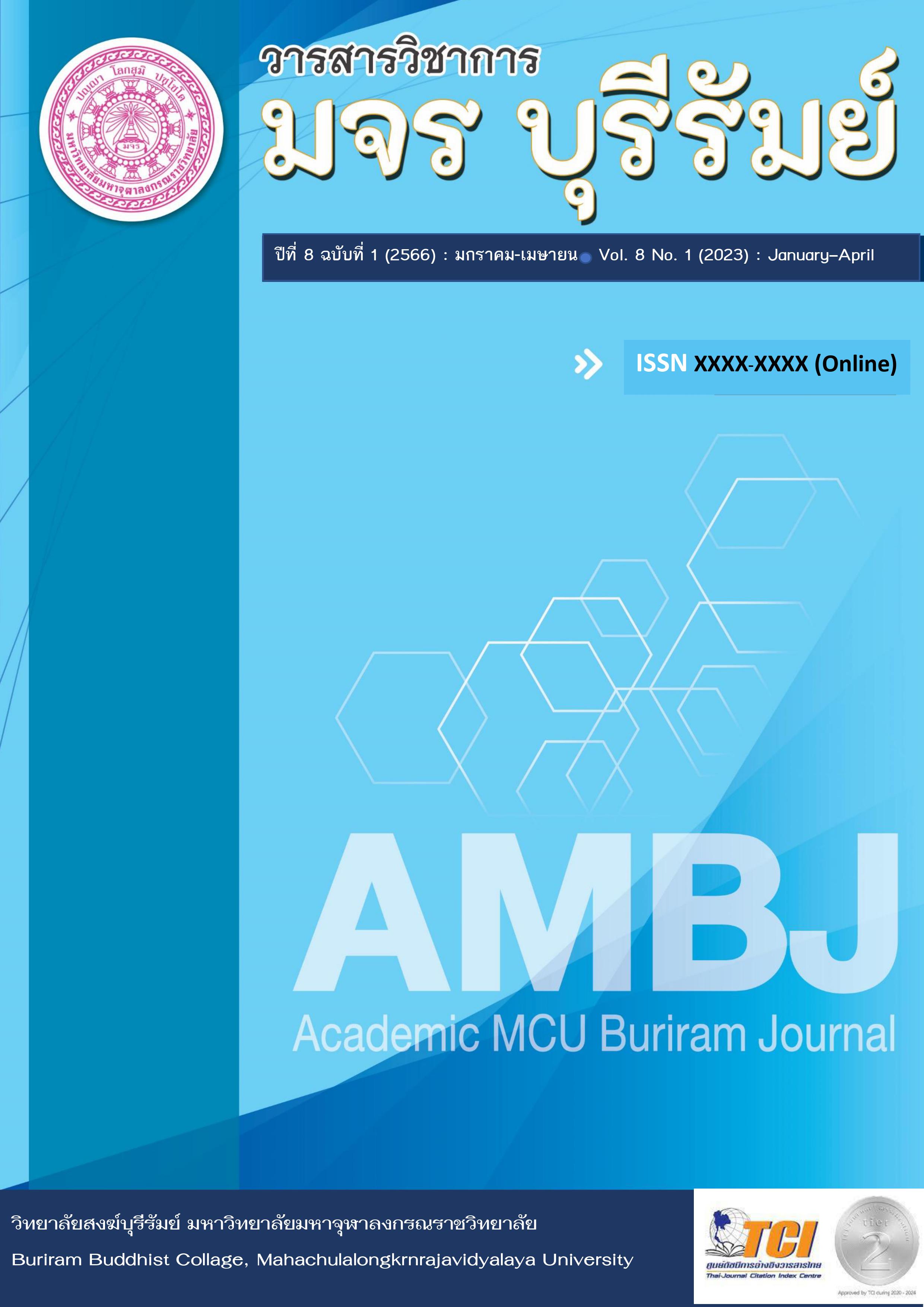A Comparative Study of Pandita (Wise Man) in Theravada Buddhist Philosophy and Confucian Philosophy
Keywords:
Pandita, Theravada Buddhist Philosophy, Confucian PhilosophyAbstract
This research aims 1) to study Pandita in Theravada Buddhist philosophy, 2) to study Pandita in Confucian Philosophy, and 3) to comparative study of Pandita in Theravada Buddhist philosophy and Confucian philosophy. This research is a documentary research. The data are collected from the Tripitaka, Confucian works and related research on Pandita in Theravada Buddhist philosophy and Confucian philosophy.
The research results found that:
Theravada Buddhist philosophy gives a general meaning to the pandita, that the wise man, the intellect person, the well-trained person. In addition, many synonyms have been found that give meanings such as pandita, Theerachon (Scholar), in terms of the qualities of a pandita for their own benefit, benefit for others and both benefits. Pandita praise and do not praise practice guidelines for graduation until reaching the highest goal of the pandita.
According to Confucius, a pandita means a person who maintains his studies. It combines both knowledge and good behavior as well as bringing good knowledge and behavior as a model in education Intellectual property is the ability to think synthetically and righteous conduct as well as the polishing methods that Confucius often used differently, such as polishing with manners of the human nature, the ability to see the value of things or even the emotional aspect. The main aim of Confucius was to try to build a culture and human behavior.
In this research study, there were 5 points of comparison: 1) In terms of meaning, it was found that give the same meaning in a humanistic sense, it is different, Pandita of Theravada Buddhist Philosophy has the meaning of a person with inner wisdom. Pandita of Confucian philosophy refer to those who are wise in the social. 2) In terms of qualifications, it was found that Pandita in Theravada Buddhist philosophy are qualified to understand the laws of nature, the state of the mind is different with pandita of Confucian philosophy are qualified to rely on their knowledge and understanding of customs or social norms to solve problems. A Pandita of Theravada Buddhist philosophy has a conscience, a feeling of good and evil that resides within the mind is different with Pandita in Confucian philosophy have customary ethics as a tool for teaching and helping people. 4) In terms of practice, it was found that Pandit of Theravada Buddhist philosophy consider the truth before experience in order to gain trust is different with Pandita in Confucian philosophy focus on behavioral change. Pandita of Theravada Buddhist philosophy have the aim of liberating from craving, having nirvana as the ultimate goal which is different with Pandita in Confucian philosophy aim to try to create social norms of humanity and good morals.
References
จำนงค์ ทองประเสริฐ. (2556). บ่อเกิดลัทธิประเพณีอินเดีย. พิมพ์ครั้งที่ 3. กรุงเทพมหานคร: สำนักพิมพ์ มติชน.
ทินพันธ์ นาคะตะ. (2559). คุณธรรมจริยธรรมกับศีลธรรมจากมุมมองของปรัชญา. พิมพ์ครั้งที่ 2. กรุงเทพมหานคร: สำนักพิมพ์ สำนักงานคณะกรรมการกิจการกระจายเสียงกิจการโทรทัศน์ และกิจการโทรคมนาคมแห่งชาติ.
พระกวีวรญาณ (จำนงค์ ชุตินฺธโร). (2502). วิชาศาสนา. กรุงเทพมหานคร: สำนักพิมพ์ มหาวิทยาลัยมหาจุฬาลงกรณราชวิทยาลัย.
พระสิริมังคลเถระ. (2554). มังคลัตถทีปนี. กรุงเทพมหานคร: โรงพิมพ์มหาจุฬาลงกรณราช
มหาวิทยาลัยมหาจุฬาลงกรณราชวิทยาลัย. (2539). พระไตรปิฎกภาษาไทย ฉบับมหาจุฬาลงกรณราชวิทยาลัย. กรุงเทพมหานคร: โรงพิมพ์ มหาจุฬาลงกรณราชวิทยาลัย.
มหาวิทยาลัยมหาจุฬาลงกรณราชวิทยาลัย. (2554). อรรถกถา ฉบับมหาจุฬาลงกรณราชวิทยาลัย. กรุงเทพมหานคร: โรงพิมพ์ มหาจุฬาลงกรราชวิทยาลัยวิทยาลัย.
ราชบัณฑิตยสถาน. (2544). พจนานุกรมศัพท์ปรัชญา ฉบับราชบัณทิตยสถาน. กรุงเทพมหานคร: สำนักพิมพ์ อรุณการพิมพ์.
ราชบัณฑิตยสถาน. (2554). พจนานุกรมฉบับราชบัณฑิตยสถาน. กรุงเทพมหานคร: สำนักพิมพ์ นานมีบุ๊คพับลิเคชั่นส์.
วัชระ งามจิตรเจริญ. (2556). พุทธศาสนาเถรวาท. พิมพ์ครั้งที่ 3. กรุงเทพมหานคร: สำนักพิมพ์ มหาวิทยาลัยธรรมศาสตร์.
สุวรรณา สถาอานันท์. (2562). หลุ่นอีว์. กรุงเทพมหานคร: สำนักพิมพ์ openbook.
Downloads
Published
How to Cite
Issue
Section
License
Copyright (c) 2023 Academic MCU Buriram Journal

This work is licensed under a Creative Commons Attribution-NonCommercial-NoDerivatives 4.0 International License.
ทัศนะและความคิดเห็นที่ปรากฏในบทความวารสารฉบับนี้ถือเป็นความรับผิดชอบของผู้เขียนบทความนั้น ไม่ถือเป็นทัศนะและความรับผิดชอบของบรรณาธิการ





